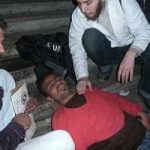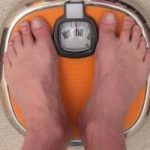General

According to the National Institute of Mental Health (NIMH) more than 2.2 million Americans suffer from obsessive-compulsive disorder. Also called OCD, obsessive-compulsive disorder is a type of anxiety disorder in which people suffer with persistent, ongoing obsessions that interfere with everyday life. Once a person has been diagnosed with OCD, it’s important for him or …
Read More

The accumulation of digestive waste makes its way through the colon, or large intestine, until it’s expelled from the body. Some health professionals believe that the colon should be regularly cleansed, so as to remove impacted fecal matter, parasites and toxic elements that can build up over time due to diet, environmental pollutants or poor …
Read More

Dealing with a breakup can be emotionally challenging, but it may also trigger the urge to soothe uncomfortable feelings with food. When you’re in the process of moving on from a relationship, here are a few strategies to help you prevent emotional eating and stay grounded in a routine of self-care: 1. Stay active. Your …
Read More

Experiencing fatigue after eating isn’t normally something to worry about, however extreme tiredness after meals may indicate a health issue – especially if you struggle with an eating disorder. If you’re eating the right foods in the right amounts, meals should leave you energized, not drowsy, so it’s important to get to the bottom of …
Read More

Slight changes in body temperature are normal after a meal, but if you suffer from any type of eating disorder, cold chills might be indicative of a larger problem. The best thing to do if you experience consistent shivering after a meal is to see a doctor to rule out possible health complications. Body weight …
Read More

Neurocardiogenic syncope or vasovagal syncope is one of the most common causes of fainting. It happens when the body overreacts to certain triggers like blood pressure changes or experiencing extreme emotional distress. A trigger will cause a sudden drop in the heart rate and blood pressure, leading to a reduction of blood flow to the …
Read More

If you have a sister, then you know about the love-hate relationship that can happen. However, no matter what the bond between sisters is very strong and she will always be there for you. Below are a few great things that you will come to understand when you fully realize the value of a sister. …
Read More

As a tool for detecting eating disorders, the Eating Attitudes Test (EAT) is one of the most widely used assessments given by metal health professionals to their patients. The test was published in 1979 and has since been a benchmark for the identification of high-risk behavior in both clinical and non-clinical settings. While the results …
Read More

Supporting a loved one or friend with bulimia involves noticing the warning signs of the disease and being willing to have honest and respectful dialogue about your concerns. Many individuals with eating disorders may be in a state of denial or can become defensive, angry or unwilling to seek help. Your job as a support …
Read More

It’s not uncommon to feel discouraged after having a large meal or going overboard on junk food. You may think that you’re going to see the consequences on the scale right away. True weight gain (which means fat storage, not water weight or weight put on from a heavy meal) is a process that – …
Read More
 Eating Disorder Self Test. Take the EAT-26 self test to see if you might have eating disorder symptoms that might require professional evaluation. All answers are confidential.
Eating Disorder Self Test. Take the EAT-26 self test to see if you might have eating disorder symptoms that might require professional evaluation. All answers are confidential.
Find a Treatment Facility Near You
Click on a state below to find eating disorder treatment options that could be right for you.










 Eating Disorder Self Test. Take the EAT-26 self test to see if you might have eating disorder symptoms that might require professional evaluation. All answers are confidential.
Eating Disorder Self Test. Take the EAT-26 self test to see if you might have eating disorder symptoms that might require professional evaluation. All answers are confidential.